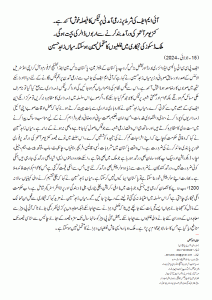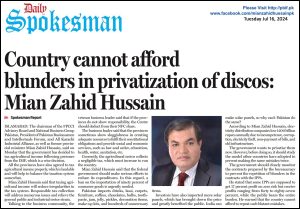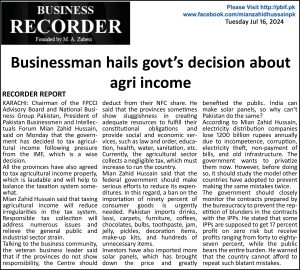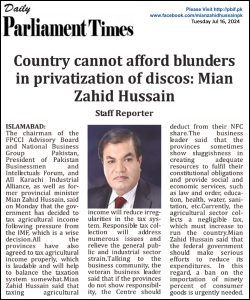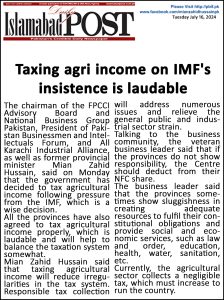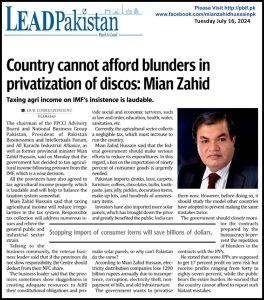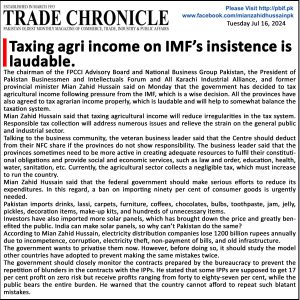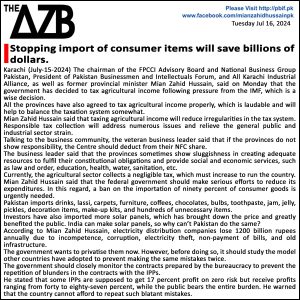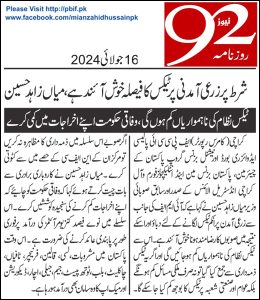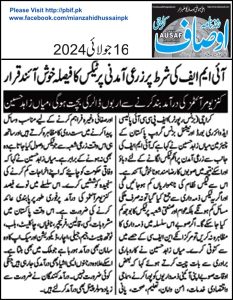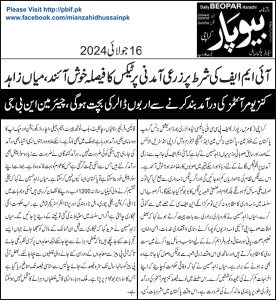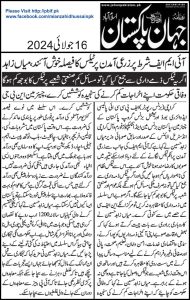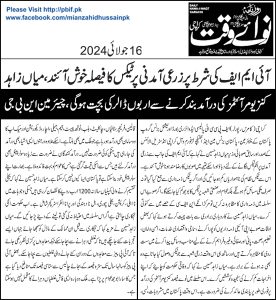(July-15-2024)
The chairman of the FPCCI Advisory Board and National Business Group Pakistan, President of Pakistan Businessmen and Intellectuals Forum, and All Karachi Industrial Alliance, as well as former provincial minister Mian Zahid Hussain, said on Monday that the government has decided to tax agricultural income following pressure from the IMF, which is a wise decision.
All the provinces have also agreed to tax agricultural income properly, which is laudable and will help to balance the taxation system somewhat.
Mian Zahid Hussain said that taxing agricultural income will reduce irregularities in the tax system. Responsible tax collection will address numerous issues and relieve the general public and industrial sector strain.
Talking to the business community, the veteran business leader said that if the provinces do not show responsibility, the Centre should deduct from their NFC share.
The business leader said that the provinces sometimes show sluggishness in creating adequate resources to fulfil their constitutional obligations and provide social and economic services, such as law and order, education, health, water, sanitation, etc.
Currently, the agricultural sector collects a negligible tax, which must increase to run the country.
Mian Zahid Hussain said that the federal government should make serious efforts to reduce its expenditures. In this regard, a ban on the importation of ninety percent of consumer goods is urgently needed.
Pakistan imports drinks, lassi, carpets, furniture, coffees, chocolates, bulbs, toothpaste, jam, jelly, pickles, decoration items, make-up kits, and hundreds of unnecessary items.
Investors have also imported more solar panels, which has brought down the price and greatly benefited the public. India can make solar panels, so why can’t Pakistan do the same?
According to Mian Zahid Hussain, electricity distribution companies lose 1200 billion rupees annually due to incompetence, corruption, electricity theft, non-payment of bills, and old infrastructure.
The government wants to privatise them now. However, before doing so, it should study the model other countries have adopted to prevent making the same mistakes twice.
The government should closely monitor the contracts prepared by the bureaucracy to prevent the repetition of blunders in the contracts with the IPPs.
He stated that some IPPs are supposed to get 17 percent profit on zero risk but receive profits ranging from forty to eighty-seven percent, while the public bears the entire burden. He warned that the country cannot afford to repeat such blatant mistakes.
